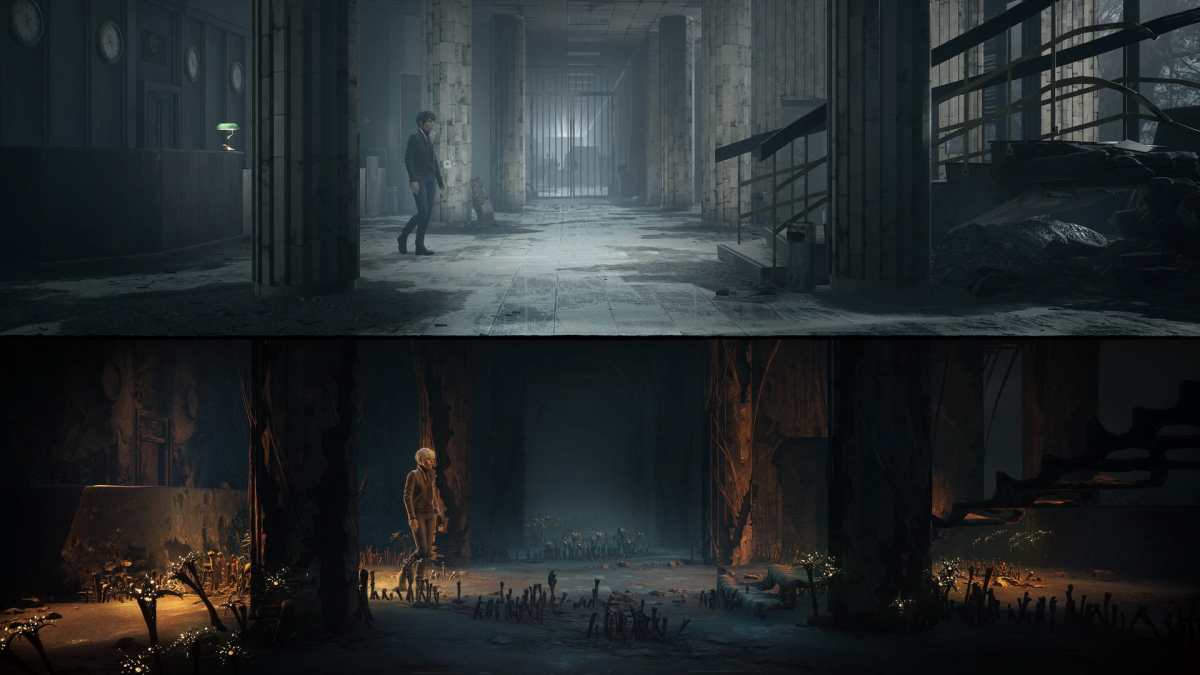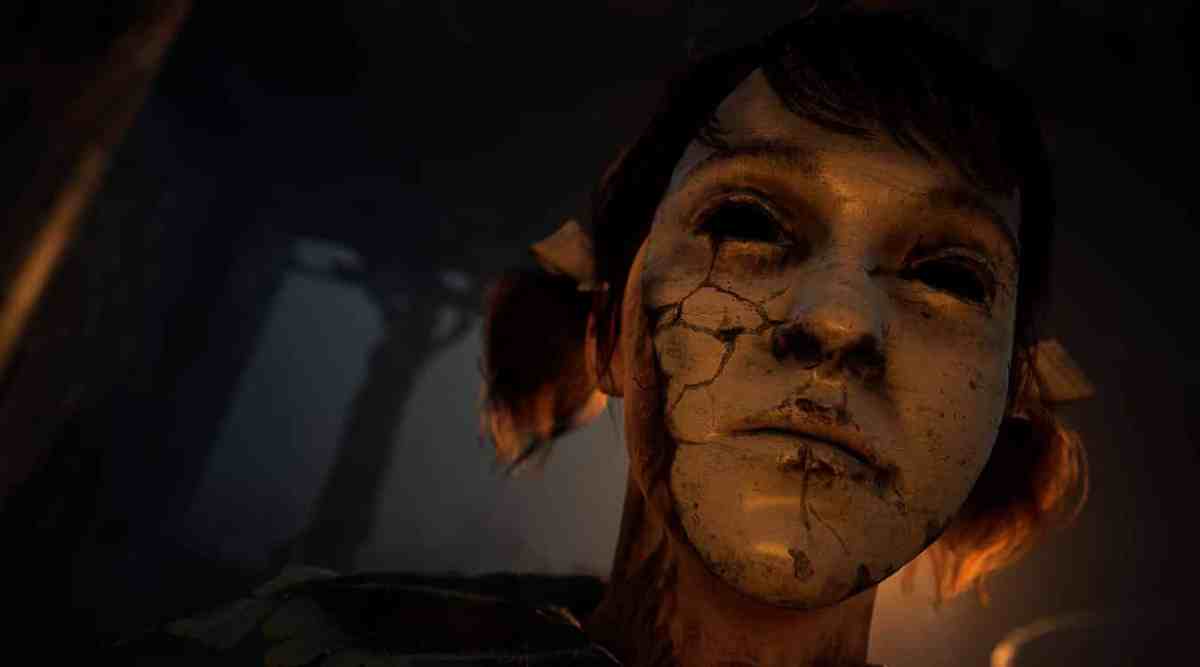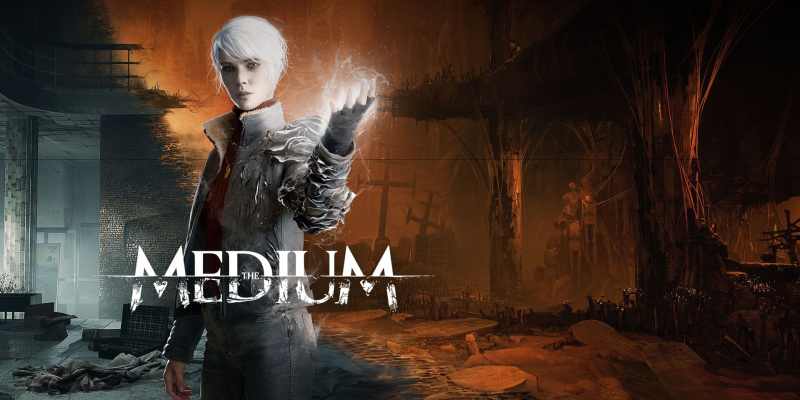Let’s get the elephant in the room out of the way — The Medium is a psychological horror game that wears its Silent Hill 2 inspirations as a badge of honor. And this makes sense, considering that Konami’s 2001 PlayStation 2 classic still holds up as one of the greatest horror games ever made, nearly two decades after its release. And in a lot of ways, The Medium does its progenitor justice, through gorgeous and spooky environments, a twisting story that melds a lot of human trauma with supernatural terror, and some fantastic music by iconic composer Akira Yamaoka. But The Medium also stumbles in some design decisions that feel frustratingly stuck in the past.
The Medium is from Polish developer Bloober Team, whose previous works include the PT-inspired Layers of Fear, the cyberpunk horror mystery Observer, and its own take on Blair Witch. This game largely embodies the studio’s visual style and understanding of how to ratchet up tension without relying on cheap jump scares (though there are still a few to be found in its 8 hours), and it stands as one of the most confident horror experiences from the studio thus far.
Most of the game is set in Niwa, a remote Polish resort that’s been abandoned for years after an unexplained tragedy led to a massacre that locals only speak about in hushed tones. You play as Marianne, a woman with a lot of questions regarding her past that travels to Niwa in search of answers. As the game’s title might suggest, Marianne has the power to transcend our plane of existence into a spirit realm. Though the ability to speak to your loved ones after they’ve passed might seem like a gift, the tortured hellscape that the other world is presented as makes it clear that, to Marianne, this ability is a curse.
This melding of dual worlds is The Medium’s standout feature and the one that’s received the most coverage leading up to its release. At prescribed points throughout the game, Marianne’s vision begins to blur, and suddenly the screen tears in half. One side is still Marianne in the ruins of the Miwa resort, while the other is a version of her in the abyss of the spirit world.

The dual-character presentation has shades of games like Brothers: A Tale of Two Sons and FromSoftware’s forgotten PS2 gem The Adventures of Cookie & Cream, and I mean that in a good way. Controlling the two of them at once never got confusing and instead helped strongly define the parallel worlds I was exploring. These sections unfurl naturally, as the screen will sometimes split horizontally and other times vertically. There are different button prompts for each version of Marianne to observe elements of her specific environment, leading to more on-screen real estate being given to the world that’s currently the focus of the story or action. And seeing a specific location in both worlds adds a sense of weight and gravity to the physical space.
You’ll oftentimes reach an obstacle in one world that requires something specific to be done in the other in order to advance. This feeds into The Medium’s light sense of adventure game-style puzzles, such as needing to search the environment for keycodes, repairing broken machinery, and moving objects in the real world to create fountains of energy in the spirit realm. The puzzles never got too tricky to really impede my progress, but they also weren’t deep enough to ever elicit that “aha!” endorphin rush that comes from solving a well-crafted challenge.
Unlike other games cut from a similar survival horror cloth, The Medium has no traditional combat to speak of. That’s probably a good thing, because the fixed camera and floaty controls aren’t anything to write home about. A few spots contained finicky camera transitions that made navigating Marianne to the exact spot I wanted her to go a bit of a hassle. Coupled with a slow character speed and certain arbitrary moments where you just aren’t allowed to run, and this whole aspect of the game felt a bit too much like it came out of Silent Hill’s PS2 heyday.
Thankfully, the game’s visuals more than make up for any of these frustrations. From the warm and lived-in feel of an apartment building in the game’s opening, to the decrepit remains of Niwa, to some beautiful natural environments, the settings throughout The Medium are a joy to experience. The architecture has a strong ‘80s Eastern Bloc aesthetic that makes for a really unique setting to explore. I genuinely loved poking around the resort and slowly piecing together its history through the relics that had been left behind.

A lot of The Medium’s backstory is told through discarded documents, echoes of past conversations that play out as short ghost-like vignettes, and rifts into the spirit realm contained within objects of special significance. The game really encourages you to take your time in each area in order to fit the pieces of its bleak mystery together.
But the true standout here is the spirit world, which draws heavy inspiration from the art of Zdzisław Beksiński, one of the premier Polish surrealists of the 20th century. His visions of unfathomable dreamscapes come to life throughout the game and provide a constant melding of unique wonder and terror. And the scenes where you’re exploring both versions of the world simultaneously make a good case for why The Medium has been prominently touted as one of the first true “next-gen” Xbox games, seeing as how it’s only available on the Series X | S and PC.
The strong art direction is enhanced by an excellent soundtrack co-composed by Akira Yamaoka and featuring the voice of Mary Elizabeth McGlynn, both of whom are synonymous with the soundscape of Silent Hill. Horror games are meant to be played in a dark room with headphones to draw you into the experience, and The Medium is no exception.
One of the most propulsive elements of the game is Marianne herself. Her constant narration and observations are well-written and excellently delivered. The bond I grew with her reminded me of the time I spent with Jesse Faden in Control, and slowly unraveling how Marianne was connected to the events that occurred at Miwa became an expanding familial mystery in a similar vein to Netflix’s excellent Haunting of Hill House.

But as much as I looked forward to figuring out the story’s twists and turns, The Medium occasionally stumbled over its own design decisions. Its atmosphere, storytelling, and mysteries lose momentum when you’re forced to engage in certain mechanics that feel like they’re pulled from several console generations ago. This includes maintaining your balance as you slowly cross a narrow beam, inelegantly sneaking through a room to avoid an enemy, or running away in a handful of clumsy auto-fail chase sequences.
Those last two are particularly annoying and provide some of the most frustrating moments of The Medium. The enemy in question is The Maw, a winged demon voiced with an unnerving high-pitched effectiveness by Troy Baker. But while the creature is compelling at first, evoking shades of the iconic Pale Man from Pan’s Labyrinth, his appearances throughout the game often grind momentum to a halt.
Stealth segments involve holding your breath and crouch-walking through a room without being seen by the creature, but there’s no sense of whether you’re actually hidden or which direction The Maw is focused on in a given moment. So it mostly felt like a crapshoot on whether I’d make it through alive or get snatched and have to fumble through the section again. The Maw quickly transforms from something Marianne and the player should fear into an annoyance that you just want to move past.
While The Medium’s design stumbles are disappointing, its human characters and gorgeous world are ultimately the things that stuck with me. Once I finally made it to the end of the road, I immediately restarted the campaign to experience all of the narrative breadcrumbs with the newfound clarity of the ending in mind, which is the sign of an effective story. And the game’s day one availability on Xbox Game Pass is just another in a long line of reasons why the service is a must-have. It might not reach the unforgettable highs of James Sutherland’s time in the town of Silent Hill, but The Medium carves out its own corner of the genre that’s worth losing a bit of sleep over.
